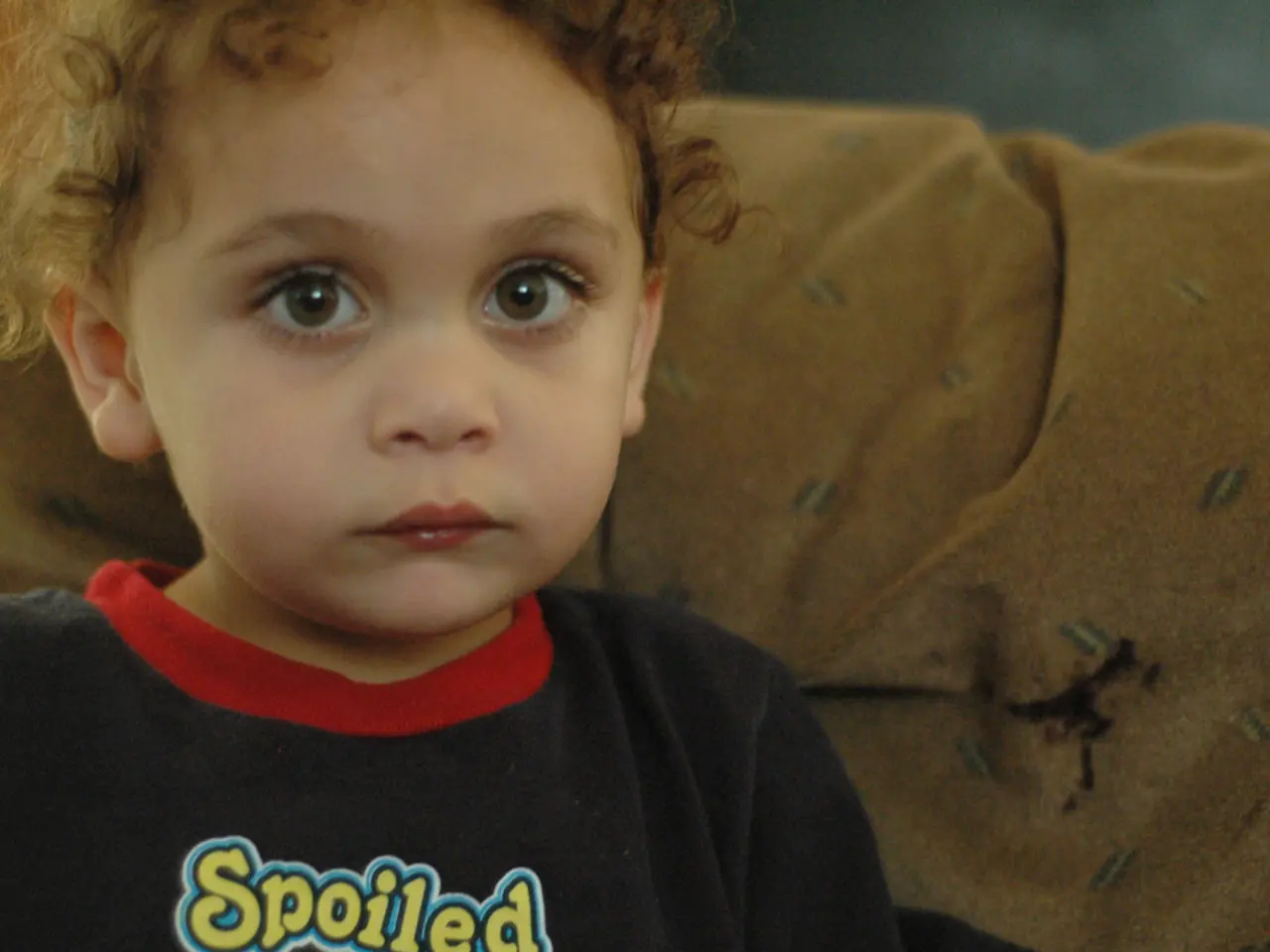Strategies for Navigating a Parent's Self-Centered Actions
Understanding Narcissistic Parenting: A Guide for Children and Adults
Narcissistic parenting, a pattern of behaviour characterized by a parent prioritizing their own needs, desires for control, admiration, and power over the emotional and psychological well-being of their children, can have profound and lasting effects on individuals.
Key Characteristics and Signs
A narcissistic parent often displays a lack of empathy and emotional coldness, showing little genuine concern for their child's feelings. They may be harsh or cruel, especially behind a charming public facade [1]. Affection and approval are given inconsistently as a form of control, making children constantly seek approval and struggle with self-worth [3].
Parents may exploit their children's achievements or attributes to enhance their own image, rather than supporting the child's individual needs [3]. They demand attention and admiration, expect perfection, and may impose harsh criticism or impossible standards to maintain their superiority [1][5].
Impact on Children
Children of narcissistic parents often feel "not good enough", blaming themselves when things go wrong [1]. They may struggle with identity confusion, imitating others to fit in and lacking healthy coping mechanisms [1]. Difficulty in setting boundaries, as they feel guilty for saying "No" and prioritize others' happiness over their own [1]. Fear of making mistakes due to anticipated shame or punishment [1]. Trouble trusting others and forming intimate relationships, often expecting betrayal or hurt [1][5]. Symptoms in children include anxiety, depression, excessive apologizing, shyness, and nervousness around adults [1].
Perfectionism and Overachievement
Children, particularly daughters, may strive for perfection to earn approval and avoid criticism, which leads to chronic stress and burnout [5].
Protecting Yourself
Learning to identify narcissistic parenting, stand up to it, and protect yourself against it can help you preserve your mental health and forge a different, happier path. If you feel threatened, seek out a trusted person to share with, attend a mental health provider, support group meeting, or contact a domestic violence hotline. Choose confrontations wisely, as they can be exhausting and potentially dangerous.
Boundaries and Expectations
Adjusting expectations is important when dealing with a narcissistic parent. Require respect, establish guard rails, and limit conversations to create healthy boundaries. Setting and enforcing healthy boundaries is crucial for dealing with a narcissistic parent.
Coping Mechanisms
Coping mechanisms for dealing with a narcissistic parent include leaning on found family, working with a therapist, keeping a journal, limiting contact or sticking to superficial topics, and seeking professional help for emotional abuse. In extreme situations, going no contact may be the safest option, especially if you're experiencing domestic violence.
Important Considerations
Before going no contact, familiarize yourself with local laws around mandatory reporting, emancipation, guardianship, and more. Speak to a mental health provider or support person before making any big moves.
Different from Narcissistic Personality Disorder
It's important to note that this behaviour is different from narcissistic personality disorder (NPD). A narcissistic parent is a term sometimes used to refer to parents with an excessive need to impress others or feel important, affecting their relationship with their children.
[1] Brown, L. M. (2016). Toxic Parents: Overcoming Their Hurtful Legacy and Reclaiming Your Life. New York: Atria Books.
[3] Karpman, S. (1968). Fairy Tales and Script Drama in Everyday Life. In M. L. Erickson (Ed.), Hypnosis: The Unconscious and the Hypnosis Phenomena (pp. 297-314). New York: W. W. Norton & Company.
[5] Millon, T., Grossman, S., Meagher, D., & Ramnath, A. (2004). Disorders of Personality: DSM-IV and Beyond. New York: Wiley.
- Children and adults, plus any individuals impacted by narcissistic parenting, might discover valuable strategies for self-preservation and a happier life by learning to identify, contest, and protect themselves against this parenting style.
- Narcissistic parents might exhibit a consistent lack of empathy and genuine concern for their child's feelings, often behaving harshly or coldly while creating an image-focused environment that constantly tests their kids' self-worth.
- The effects of narcissistic parenting can last far beyond childhood, leaving lasting impacts on mental health, relationship dynamics, identity, and coping mechanisms.
- Strategies for coping with narcissistic parents may include developing healthy boundaries, seeking help from mental health providers or trusted individuals, and learning to lean on supportive relationships called 'found family.'
- A fundamental aspect of protecting yourself against narcissistic parenting involves gaining knowledge about relevant laws and regulations regarding emancipation, guardianship, and mandatory reporting before making any major decisions.




